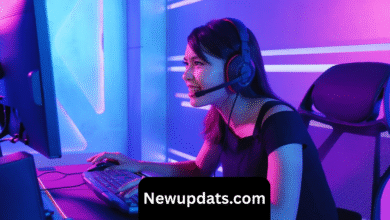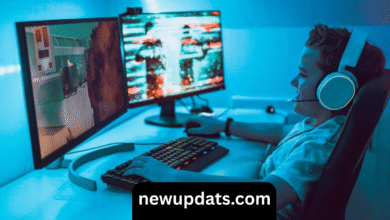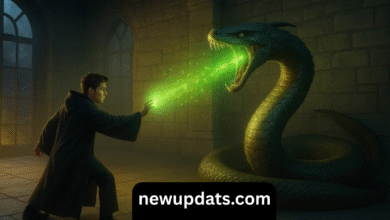The phrase “connections hint mashable” combines three elements that, when unpacked, open a window into the intersection of digital puzzles, media culture, and user engagement strategies. At the heart of this keyword is “Connections,” a daily word game developed by The New York Times that has garnered a devoted following for its clever design and stimulating challenges. “Hint” represents the demand from players for help navigating its complexity. “Mashable,” a well-known media outlet, enters the picture as a provider of support, guidance, and cultural commentary on such viral trends.
When players seek a “Connections hint Mashable” they are not just looking for answers—they are participating in a broader cultural phenomenon that blends gamification, media influence, and shared digital experiences. This article dives deep into the roots, implications, and rising popularity of this phrase, dissecting each part to explore why it resonates and what it reveals about today’s digital media consumers.
The Rise of the New York Times’ Connections Game
Connections is a word-based puzzle game released by The New York Times as part of its expanding portfolio of mind-challenging digital content. Following the massive success of Wordle, Connections was launched to appeal to players who enjoy classification-based reasoning. In Connections, players are presented with sixteen words and must group them into four connected themes, each containing four words. The themes can range from simple categories like “Types of Fruit” to more nuanced associations such as “Words That Are Homophones.”
The game’s allure lies in its layered difficulty. Unlike crossword puzzles or spelling games, Connections requires associative thinking, cultural knowledge, and lateral reasoning. It also emphasizes a daily reset format, encouraging repeat visits and fostering a loyal user base. The popularity of Connections has surged across social platforms, where users frequently share their daily victories and frustrations.
The Need for Hints in a Challenging Puzzle
As more users engage with Connections, many find themselves stumped by the subtle logic behind some of the groupings. While the solutions may seem obvious in retrospect, the act of categorization requires an understanding that is not always straightforward. This has led to a significant demand for hints—clues that nudge players toward the correct associations without giving the entire answer away.
Hints serve multiple roles. They help new players become familiar with the gameplay mechanics. They also keep seasoned players from quitting in frustration, preserving the game’s engagement cycle. For many, solving the puzzle with a hint still counts as a win because it preserves the satisfaction of deducing the connections. This is where outlets like Mashable step in to fill the gap between the game’s complexity and user satisfaction.
Mashable’s Role in the Puzzle Culture
Mashable is a digital media platform known for covering tech, digital culture, and entertainment. Over time, Mashable has expanded its editorial scope to include games and puzzles that captivate the online world. With the rise of games like Wordle and Connections, Mashable has developed a niche in offering daily hints, walkthroughs, and cultural commentary around them.
When users search for “Connections hint Mashable,” they are typically looking for the daily hints published by Mashable to assist in solving the puzzle. These hints are carefully designed not to spoil the experience but to offer helpful nudges. For example, Mashable might offer the categories but not tell which words belong in each. Or it may describe the theme in broad strokes to allow players to think more deeply.
This form of content creates recurring traffic to Mashable’s site and cements its role as a daily companion in the lives of puzzle enthusiasts. The hints build a bridge between user curiosity and successful gameplay, fostering a sense of community and shared intellectual exploration.
The Gamification of Media Engagement
The popularity of hints and puzzle-related content underscores a larger shift in how audiences interact with media. Gamification has become a core component of engagement strategies across platforms. The rise of daily puzzle games, streak counters, badges, and leaderboards reflects this trend. Mashable’s embrace of Connections hints illustrates how media outlets are evolving not just to report on culture but to be embedded within it.
In this ecosystem, games are not isolated experiences—they are events around which conversations, content, and communities form. A simple puzzle becomes the basis for shared online experiences, much like the communal feel of reading a shared news article or reacting to a viral video. By offering hints, Mashable becomes more than an observer—it becomes a guide, a collaborator, and a co-creator in the user’s daily journey.
Search Behavior and Content Demand
The specific search query “connections hint mashable” is evidence of how user behavior shapes content. It is a targeted, intent-driven phrase that reflects both a need and a trusted source. Users know that Mashable consistently delivers relevant and timely hints. This brand trust plays a crucial role in sustaining traffic and fostering loyalty.
From an SEO perspective, this query illustrates how niche content can drive engagement when paired with timely publishing and brand reliability. The phrase also reflects the importance of specificity in search. Rather than searching for vague help or general solutions, users seek tailored, daily-updated guidance from a recognizable authority.
Psychological Impact of Puzzle Solving
Solving puzzles like Connections offers more than entertainment—it stimulates the brain, encourages problem-solving, and provides a dopamine boost associated with accomplishment. Hints allow players to persist through cognitive roadblocks without robbing them of the pleasure of discovery. They are aids, not cheats.
Psychologically, this keeps the player in a flow state, where the challenge is neither too hard nor too easy. It also helps maintain daily rituals that promote cognitive well-being. The inclusion of Mashable in this cycle reinforces the value of soft guidance in complex tasks. It fosters learning, curiosity, and sustained engagement without promoting dependency.
Cultural Sharing and Community Building
The cultural impact of games like Connections is amplified through online sharing. On platforms such as Twitter (now X), Reddit, and TikTok, users frequently share their puzzle results, vent frustrations, or debate the validity of certain groupings. Hints from sources like Mashable often become part of the conversation, cited or discussed by users navigating that day’s puzzle.
This shared discourse turns the act of solving Connections into a community event. It’s no longer just about individual intelligence—it becomes a cultural exchange. When people discuss how they approached a puzzle or how they interpreted a hint, they are bonding over shared mental frameworks and divergent thought processes.
Evolving Role of Digital Journalism
The rise of interest in keywords like “Connections hint Mashable” also reveals how journalism is adapting to meet readers where they are. In a world of fragmented attention and endless options, providing value means being both informative and helpful. Coverage of puzzles, games, and daily digital experiences helps publications like Mashable stay relevant.
Rather than offering static content, Mashable produces dynamic, responsive journalism that evolves with daily trends. This positions them at the intersection of news, entertainment, and utility. Their role expands from informing the public to actively participating in their daily lives.
Educational Value of Connections and Hints
Beyond entertainment, Connections also has educational value. It enhances vocabulary, encourages associative learning, and fosters pattern recognition. Hints from Mashable or other reputable outlets contribute to this educational journey by offering subtle clues that push the brain to form new neural connections.
This kind of low-stakes, high-engagement learning is incredibly valuable in today’s world, where traditional education is often supplemented by informal learning platforms. By providing accessible, enjoyable challenges, and pairing them with helpful hints, the game and its supporters like Mashable contribute to lifelong learning in a digital context.
The Future of Puzzle Culture and Media
Looking ahead, it is likely that the relationship between games like Connections and media platforms like Mashable will continue to deepen. As AI-driven content, user personalization, and gamified experiences expand, we may see more tailored hint systems, interactive tutorials, and community-driven clue forums.
Mashable may evolve from simply offering hints to creating Connections Hint Mashable that analyze player behavior or provide feedback on performance. This could further integrate the platform into the gaming ecosystem, making it an indispensable part of the experience.
Final Reflections on “Connections Hint Mashable”
The search term “Connections hint Mashable” encapsulates a moment in contemporary digital culture where entertainment, community, and journalism intersect. It shows how a simple need—help solving a puzzle—can give rise to meaningful engagement, cultural participation, and evolving media strategies.




